July 2019 2nd Edition
July 2019 2nd Edition Londekile
Translations
A house to call home
A house to call home angenithaGovernment has eased the burden for another 42 Western Cape residents by providing them with their own home.
Cassidy September (10) finally has her own bedroom and backyard to play in, thanks to the Western Cape Department of Human Settlements that has given her mother, September (44), a two bedroom-house.
The house in Forest Village, in Eerste River, was handed over to an excited September at the end of May. 
September said having her own house means that her asthma will not trouble her as much as the roof won’t leak. “I am very happy. It will be much better for me and it will be a positive thing… In winter, when the rain starts, my asthma is very bad,” she said.
September explained that she has rented a shack in someone’s backyard for the past 16 years and, when it rained heavily, the shack leaked. She and Cassidy had to place buckets all over the floor to stop the rain from flooding her home.
The newly-built house has a backyard for Cassidy and the family’s dog to play in and September will create a small garden for her family.
Previously an office cleaner, September now lives off a disability grant. She is happy that she will be able to save money as she no longer has to pay R250 rent and R400 electricity a month.
September’s house is one of 42 that the department handed over on the day. “I applied for the house in 2000 and went to the department’s office frequently to remind them,” said September.
Another beneficiary, Magdalena Thapel (56), is also elated as she too now no longer has to rent a shack.
Western Cape Human Settlements MEC Tertuis Simmers said that the department is working hard to reverse the housing backlog in the province. “I’d like to remind our beneficiaries that they now have a responsibility to take care of their homes. I look forward to returning to the area to hand over more houses and engage with the community.”
The department said that five percent of the project was dedicated to people with
special needs and the houses have wheelchair ramps and railing.
Bricks build entrepreneur’s bright future
Bricks build entrepreneur’s bright future UrsulaA successful sand delivery and brick manufacturing entrepreneur continues to reap the rewards of following his dreams.
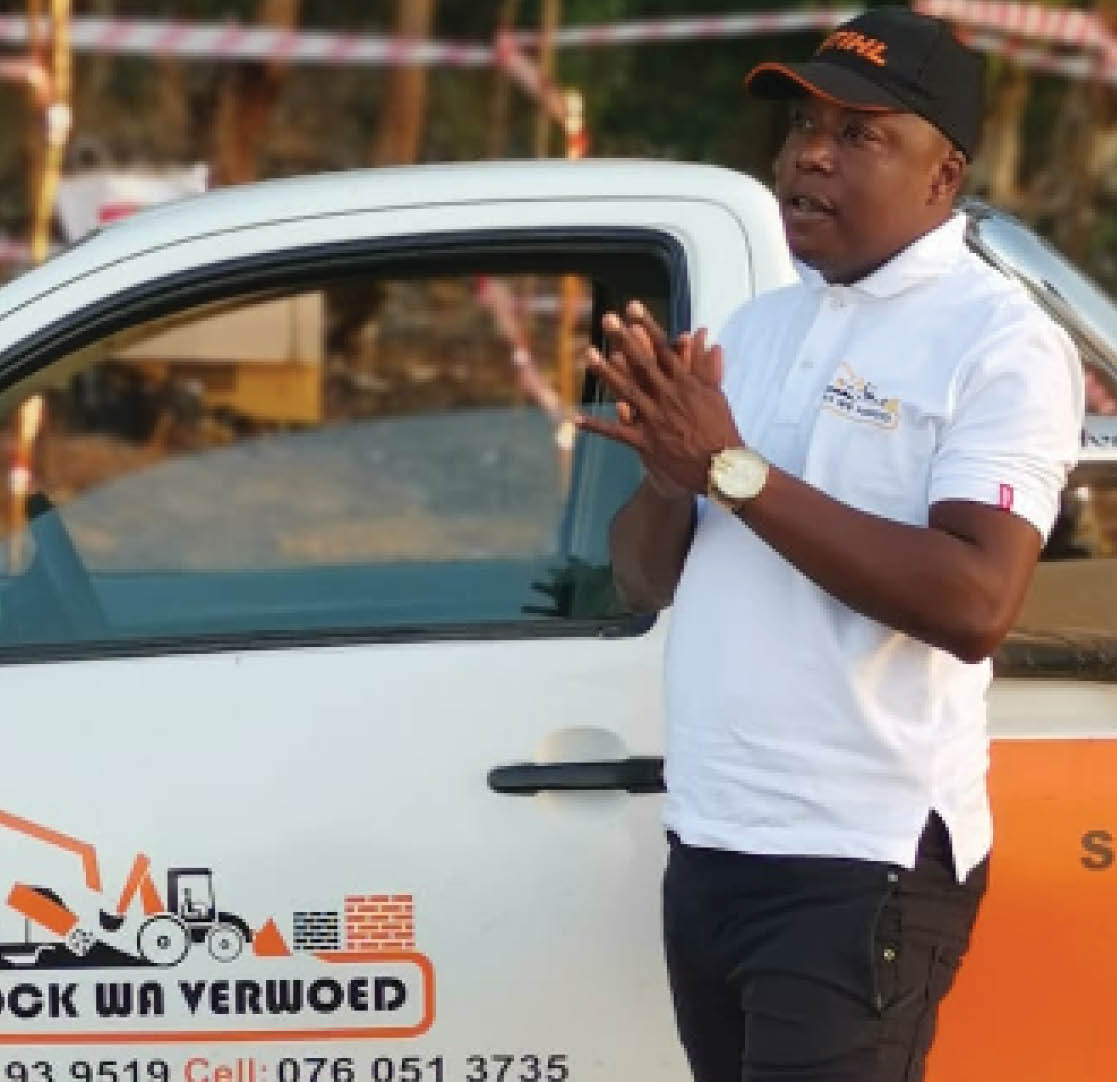 Entrepreneur Enock Mnisi (30), who acquired his business acumen from his father, is running a successful business that creates jobs for locals.
Entrepreneur Enock Mnisi (30), who acquired his business acumen from his father, is running a successful business that creates jobs for locals.
After completing a National Diploma in Information Technology at a college in Pretoria, Mnisi returned home to Mkhuhlu, in Mpumalanga, in 2011 to work with his father at his furniture manufacturing and transportation business.
“I worked with him for three years before I started my own business. He employed me as a supervisor and that taught me a lot about running a business,” Mnisi said.
In 2014, Mnisi registered his own business - Enock wa Verwoed. At the time, he owned a truck and was delivering sand to local builders and buyers. A few years later demand increased and he bought three more trucks.
“After three years I saw a gap in the market because customers wanted bricks. My father helped me buy a brick manufacturing machine... I eventually got it right and started supplying brings too,” he said.
Mnisi’s business grew even bigger and he hired more people. He also bought more machines to manufacture more bricks. The company has employed close to 40 people, the majority of which are youth.
“Sometimes, when the business is good, we add 10 more people to meet our targets. This means putting food on more tables and a positive change in the business,” he said.
The Small Enterprise Development Agency helped Mnisi with his business plan, which enabled him to formalise the business and supply his products to Cash Build and Laduma Hardware stores in the area.
He plans to buy a bigger brick manufacturing machine to solidify his business relationship with his clients and attract more business.
Mnisi advises aspiring entrepreneurs to follow their dreams and not focus on challenges. “Challenges will always be there, all you need is discipline and courage to follow your dreams. Do not wait for anyone to do things for you. Believe in yourself and keep pushing yourself,” he said. Mnisi and his sister recently took over their late father’s furniture business and are positive that they will do well.
Cape Town on a new push to improve ECD
Cape Town on a new push to improve ECD tsoanaThe rural West Coast community of Wolwerivier is the latest to benefit from the City of Cape Town’s efforts to expand access to early childhood development (ECD) facilities.
The Wolwerivier community has struggled with access to proper services, including education, since 2016 when its only ECD centre was closed because it was operating on agr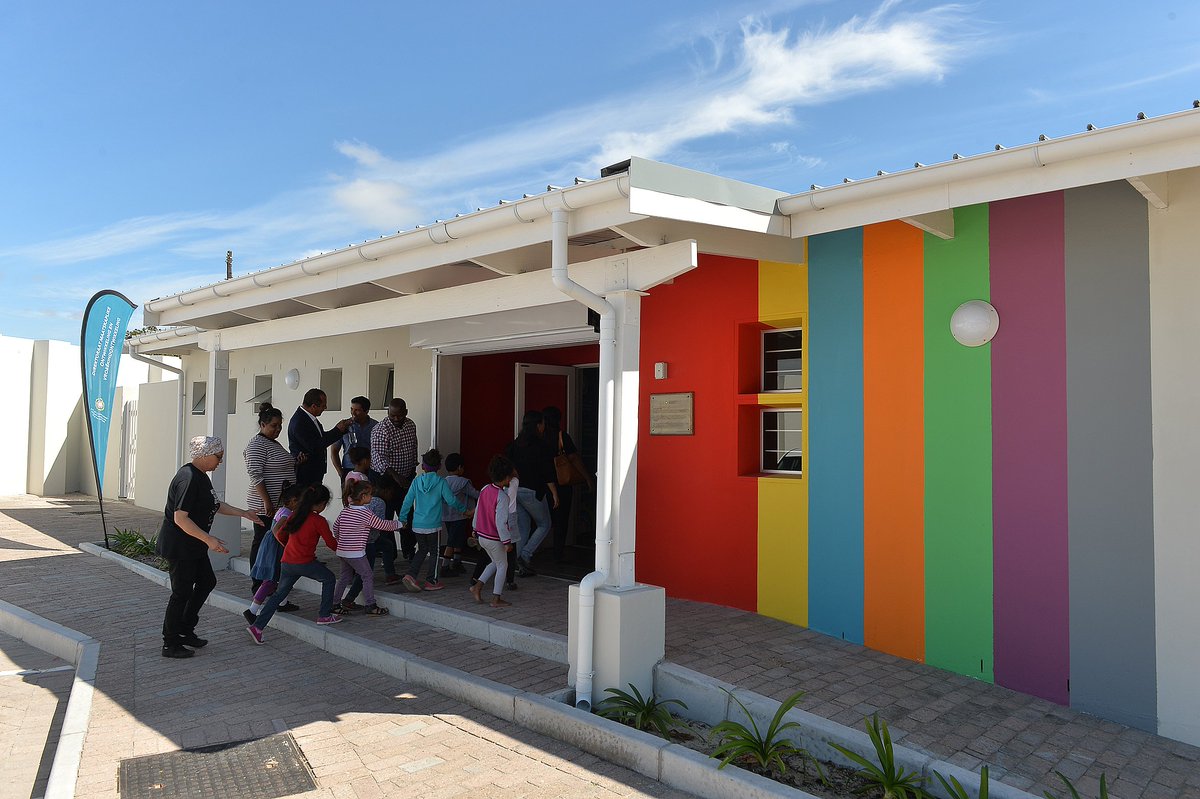 icultural land.
icultural land.
Residents are thus delighted with the new R6 million ECD centre, that can accommodate 150 learners. The centre was handed over to non-profit organisation Wolwerivier ECD, to run, by the city’s Social Development and ECD Department in June.
“This has been a long time coming and we are very happy that the ECD centre is ready to open its doors. Foundation phase learning is such a crucial element in a child’s development, and I hope that the community will make full use of the facility,” said the City’s Mayoral Committee Member for Community Services and Health, Councillor Zahid Badroodien.
Community member Demi Koopman said she is grateful that her two young children will be able to start their education.
“I am very happy that they can start going to school now. As a community, we have been waiting a long time for something like this to happen. Many of the people here are unemployed and cannot afford to take their children to ECD centres outside Wolwerivier.”
The city’s drive to improve ECD access has seen the signing of 10-year facility management agreements with 27 ECD operators in impoverished areas.
“We recognise that there is a shortage of suitably located and optimally functioning ECD centres in our city. It is for this reason that we continue to invest in building facilities that are run by independent operators,” said Badroodien.
“With these agreements, we have given peace of mind to the successful operators, as the agreements will be in place until 2029. For the city, it is important to help bring stability and advancement in the ECD sector, because the research is clear – how a child starts the learning process, will have a far-reaching impact on the rest of their life.”
The city also offers training to ECD staff, covering teaching methods and child safety; and provides educational materials, toys and safety equipment.
Celebrate Savings Month in July
Celebrate Savings Month in July angenithaSavings Month is a great way to help South Africans focus on why we should save and how to do it, ensuring that we take back our power to become financially free.
According to South African Savings Institute CEO Gerald Mwandiambira, while there’s no doubt that South Africans are struggling under increasing financial pressure, it is at times like this that a savings buffer becomes even more important.
The bigger picture ñ money and relationships
When it comes to spending and saving, those in a long-term relationship should form a plan with their spouse or partner. However, different views could mean different spending priorities, which can create tension. How can you navigate the sensitive money issue with your partner to ensure that your saving goals are shared?
Maintain an open dialogue:
It is a couple’s choice whether to invest and save together or separately and there is no right or wrong way. By talking openly and honestly about money, couples can establish common ground.
Set clear financial goals:
One of the mistakes couples make when it comes to their finances is not having clearly-defined goals. By setting goals, each person can manage the other’s expectations, while working to achieve the desired outcome. We all have different investment personalities, but once the goals are clear it becomes much easier for the investor and the financial adviser to determine the actions necessary to achieve them.
Explore your options:
Whether it’s saving money towards buying a house or your child’s education, couples need to explore their options.
People often use the terms investing and saving interchangeably, but time frames and goals dictate the difference between the two. For example, you might want to invest together to achieve a long-term goal, such as your child’s education, but individually when saving for personal short-term goals.
Talk to a financial adviser:
Earlier is always better when it comes to financial planning and investing. Couples looking to plan their financial future together should seek a professional financial adviser’s help. This will ensure that you are on the same page and both involved in decision making, and can contribute to easing any tension.
Comfort for the cold
Comfort for the cold angenithaThe best part of winter is spending time indoors, curled up on the couch with a good book or a movie. It’s even better accompanied with some delicious comfort food. We have some ideas that will take your “me time” to another tasty level. 
Beef Stew
Ingredients
3 Tablespoons all-purpose flour
1Kg beef stew meat, (fat removed)
½ Stick butter
2 Cups water
1 Teaspoon dried thyme
2 Teaspoons salt
1 Teaspoon black pepper
6 Potatoes, peeled and quartered
6 Carrots, cut into large chunks
3 Onions, quartered
Method
Place meat in a bowl and coat with flour. Over medium heat, melt butter in a pot and add the meat. Cook for 10 minutes until the beef is browned on all sides. Add water slowly and stir. Sprinkle with thyme, salt and pepper, stir well and bring to boil. Reduce the heat to low and simmer for one hour. Add in the remaining vegetables and simmer for one hour, stirring occasionally until everything is cooked through and tender. Serve with rice or bread of your choice.
Curbing initiation deaths
Curbing initiation deaths tsoana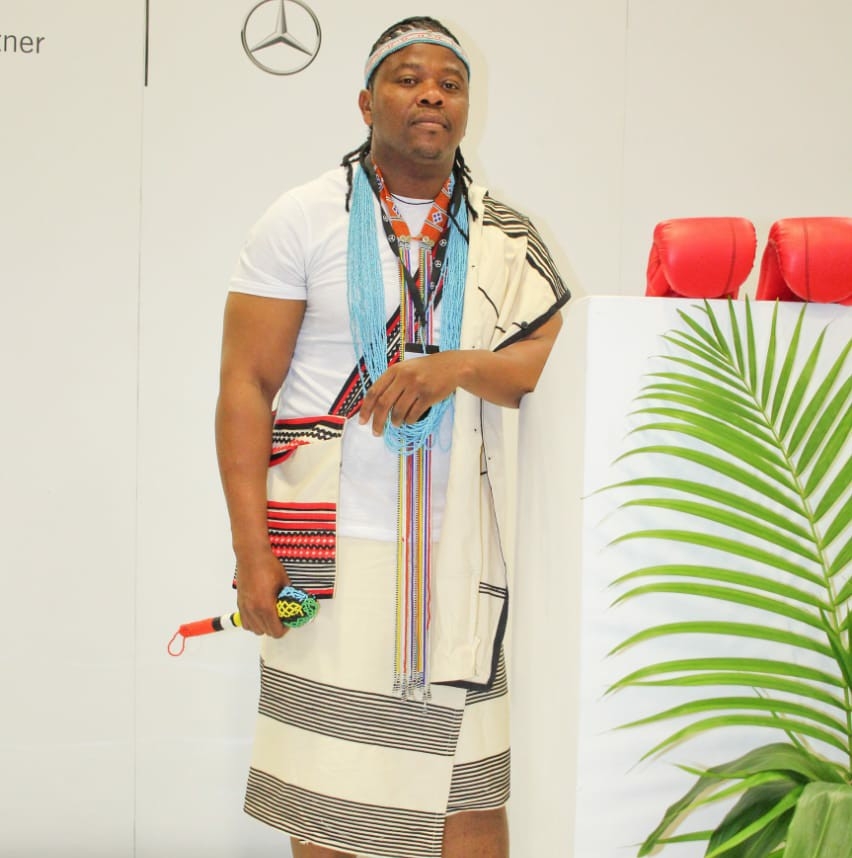 Parents, communities and traditional authorities need to play a stronger educational role if circumcision-related deaths are to be curbed.
Parents, communities and traditional authorities need to play a stronger educational role if circumcision-related deaths are to be curbed.
With winter being the start of circumcision East London-based traditional surgeon Andile Siko (39), who has been circumcising boys for the past 20 years believes that parents have a big role to play in the process of initiation.
Siko said parents should educate boys, from an early age, about why they should only be initiated after they turn 18. This, he said, will ensure that young boys do not put their lives in danger by getting circumcised when they are younger, at illegal circumcision schools, without parental consent.
Illegal circumcision schools put young boys’ lives at risk, as these schools do not have the necessary skills, tools or approval to conduct circumcisions.
“I think the process of circumcision is mostly mental. A male must be trained when he is still a child. He must be raised with the mindset that, as a man, he has to make mature and thoughtful decisions. This makes things easier when parents have to tell him that he must wait until he is 18,” Siko said.
He said that to curb the death of initiates, there also needs to be a formalisation of circumcision.
“In most cases, where initiates died, you find that the initiate was too young to have been circumcised in the first place. I heard somewhere that a seven-year-old child was circumcised and that is wrong,” Siko said.
He added that parents, especially fathers, need to explain to young boys what initiation is about. He said in these discussions it is ideal to explain that the process is not about looking good in their matching outfits as amakrwala (the stage where initiates have recently come back from the mountain).
“Parents must sit down with their children and explain what will physically be done to them. They must explain that the initiation process comes with responsibilities.”
Get parental consent
Joseph King (31), who went to an initiation school in Butterworth, said prospective initiates should discuss when and how they be will be initiated with their parents.
He felt ready to be circumcised when he was 17 and he spoke to his parents. He was told to wait until he turned 18. Waiting helped him to prepare.
“As a human being, a certain level of maturity comes when you reach a particular age. The initiation process is about maturing from a boy into a man. To be a man requires being able to know when to do things and how to do them, in the correct manner,” he said.
King explained that initiates need to undergo cultural processes and health tests before they are circumcised.
He added not using a reputable and registered surgeon or school could result in a botched procedure and warned parents about bogus and unregistered traditional surgeons.
“Registered initiation surgeons should have the relevant paperwork from the department that is responsible for the tradition. Also, the traditional nurse that will take care of initiates must have the requisite paperwork stating that he is fit for the job,” King said.
Registered traditional surgeons
The Department of Cooperative Governance and Traditional Affairs (Cogta) in the Eastern Cape, which is responsible for overseeing the tradition, said that traditional surgeons are registered with and trained by the Department of Health.
Cogta provincial spokesperson Mamnkeli Ngam said the department is working to raise awareness about the importance of doing things the right way and is working with several organisations to curb deaths.
"We have established the District Initiation Forum and local initiation committees. We are also in partnership with the Vusizwe Foundation, Ikamva Lesizwe Foundation and Family Society Foundation to combat the death of initiates and close down illegal circumcision schools in the province. Working with the Ikamva Lesizwe Foundation, we recently opened a rescue centre in Libode," he said.
The centre takes in initiates that Cogta and its partners rescues from illegal initiations.
Ngam also said that Cogta is working with the provincial department of health to continue training traditional surgeons and nurses in wound treatment.
Ngam added that once traditional surgeons and nurses have been trained they are awarded a certificate which proves that they are registered with the Department of Health and have been trained.
“It is important for parents to ask traditional surgeons and nurses for these certificates before enrolling their child to an initiation school,” said Ngam.
“The surgeons are trained in health standards. The surgeon must have gloves. They must sterilise their tools.”
Ngam added that those who know illegal initiation schools should report to the nearest police station, local authorities such as chiefs and councillors or the chair of the District Initiation Forum.
You can report illegal initiation school by calling;
SAPS – 10111
Right to Care 011 276 8850.
Ikamva Lesizwe 083 498 9319 or email anqeketo@ikamvainstitute.org
Essay competition tackles racism
Essay competition tackles racism vuyelwanYoung people are writing down and discussing their experiences of racism in South Africa thanks to the Ahmed Kathrada Foundation.
Participants in the Ahmed Kathrada Foundation’s annual Youth Essay Writing Competition Against Racism are addressing the sensitive topic through their writing. The competition, which is already accepting entries for this year’s leg, aims to help start a dialogue in the country about issues of racism and how they impact South Africans.
This year’s themes include “#UniteAgainstRacism; Race is not real, but racism is; Othering and belonging; and Racism in South African schools, a thing of the past?”.
Winner of the 2017 competition, Nia Louw (18) says the competition gave her the opportunity to confront her own experiences of racism. The psychology and media studies student at the University of KwaZulu-Natal said it was when she was preparing the oral presentation of her essay that the trauma of her past experiences with racism struck her.
“The essay started off with my thoughts about how life would be if we were never colonised. I then went into my own experiences of what it was like experiencing racism in a school environment,” she says.
Louw adds that during her time at a former Model C school she felt discriminated against for turning up with her natural hair.
“A lot of schools were not acknowledging what it feels like to be victimised for having natural hair; to have your hair always be an issue at school as a young black woman,” Louw adds.
Winner of the 2018 competition, Tyla Prinsloo, says her essay called on others to tackle racism wherever it manifests itself in the country.
She says the competition gave her the opportunity to write about how being silent when others make racist comments is in itself an act of racism.
“The subject matter is something that is relevant for the demographic that I am a part of because it is something that we assume that we are not meant to speak about because we are born free or it’s the rainbow nation,” she says.
The 21-year-old says her essay was drawn from personal experiences where she was expected to not speak out when people were making racist statements or acting in a racist manner.
The competition is taking entries until the end of July and essays can be written in any of the official languages. Entries should be between 1 000 and 1 400 words, and participants must be between 15 and 25 years.
“This year, we look forward to learning from the young minds of this country and hear how they think our society can be shaped and transformed to meet the type of vision articulated in our Constitution,” said Jessica Mofokeng, who runs the competition on behalf of the foundation.
Each essay should clearly indicate the participant’s name and surname, their chosen topic, age, their postal address as well as a contact number that the essay writer can easily be contacted on. Essays must be sent to youth@kathradafoundation.org.
The winner will be awarded R2 000 in cash, while the runner up will receive R1 000 with the third placed person will receive R500. Each of the top three will also each receive a laptop.
Farmers combat climate change
Farmers combat climate change LondekileThe Namakwa District in the Northern Cape is a dry, hot and remote place where farming activities are heavily affected by climate change.
Here, livestock farmers struggle to cope with the extreme heat and cold weather meaning that many battle to make a living. 
But thanks to a ground-breaking project implemented by the South African National Biodiversity Institute (SANBI) and supported by the Department of Environmental Affairs, these farmers are starting to win the battle against climate change.
The Adaptation Fund is a global initiative which finances projects and programmes in vulnerable communities, with a special focus on projects that deal with the effects of climate change. SANBI was selected as the implementing agent of this programme in South Africa. Under the programme, a R33 million Small Grants Facility has been set up to empower rural farmers and communities to fight drier conditions.
In the Namakwa District, one of the grantees is the Biodiversity and Red Meat Co-operative (BRC).
In 2016 it received a grant to introduce new indigenous breeds of livestock in the rural community of Leliefontein. This was after long periods of drought had weakened local livestock production and sales. In 2015, for example, 80 percent of all lambs and 10 percent of productive ewes were killed during a cold spell in the region.
The co-operative identified that indigenous breeds would be much more resilient to the extreme climate of the area. A total of 65 sheep and goats were distributed amongst the BRC farmers and since then the original stock has produced 350 healthy offspring, helping to increase production and income for the farmers. It has also proven that the project is meeting its aims.
For Katie Beukes, the project gave her the opportunity to start farming.
“I am a member of the BRC, but previously I only owned land and not livestock. Now, the co-operative has offered me livestock to start farming. I plan to keep breeding my livestock and improve my livelihood by selling to local markets,” said Beukes.
SANBI’s strategic grants manager Michael Jennings said Farmers and community members were offered the chance to apply for funding, based on projects that would allow them to build resistance against climate change.
“Once a project is approved and they receive funding, the communities are able to adapt their projects to their own needs and then manage those projects themselves. We support them with capacity building and funding.”
Free State’s fired-up female winemaker
Free State’s fired-up female winemaker UrsulaIn just seven years, a determined woman has transformed a somewhat neglected vineyard into a thriving one and has proudly introduced her own wine label. 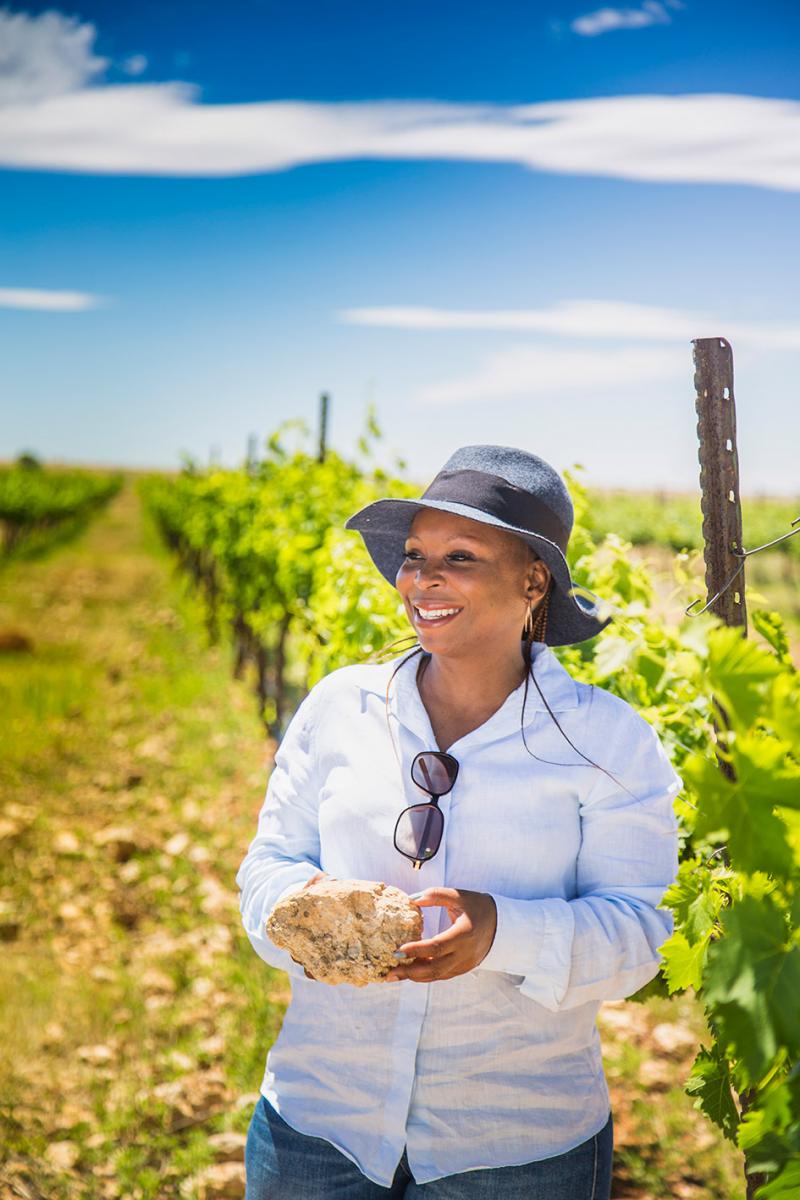
Farmer and businesswoman Tebogo Ditsebe from Jacobsdal in the Free State always had a passion for farming, but she never thought she would one day own a vineyard and a wine label, Botebo Wines.
Botebo means ‘depth’ and refers to the rich and deep soil of the Free State, which makes it suitable for all sorts of farming.
Ditsebe said she was approached by a farmer in the area to buy his farm, as he had noticed her passion and love for farming. She then approached the Department of Rural Development and Land Reform for funding assistance.
“I used to own a consultancy training firm, which was not doing well. So when the opportunity to buy a farm came along, I didn’t hesitate,” she said.
Ditsebe did her homework thoroughly, spending two years in the Cape learning the ins and outs of winemaking.
“Although funding is a big hurdle for emerging farmers because of the huge financial capital needed, the experience has been exciting,” said Ditsebe, reiterating that she would not change her current life situation for anything.
Her greatest achievement has been managing and running the farm on her own and her most precious achievement is establishing the Botebo Wine label, which produces rosé, sparkling, cabernet sauvignon, merlot and chenin blanc wines.
Ditsebe received Recapitalisation and Development Programme funding from the Department of Rural Development and Land Reform, which assisted her with infrastructure development. She was also the 2018 overall winner of the Agro-Processing Funding Programme run by the Free State Department of Economic, Small Business Development, Tourism and Environmental Affairs and was awarded R450 000 worth of equipment.
Ditsebe is proud that her business is now able to sustain itself. The farm has three permanent employees and employs between 30 and 50 seasonal workers during pruning, harvesting and weeding seasons.
She plans to employ more people, expand the vineyard, which is currently 48 hectares, and intensify agro-processing.
“Any business requires patience and passion,” she concluded.
Giving hope to unemployed youth
Giving hope to unemployed youth UrsulaA government-based agency charged with tackling challenges that face the nation’s youth runs a number of programmes that aim to give youngsters a fighting chance.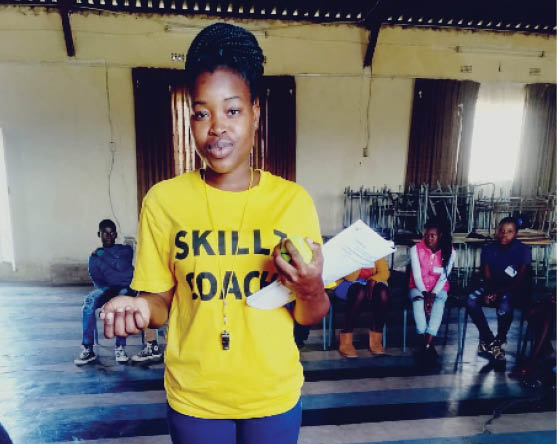
Londiwe Mbatsane, who is a skills coach for non-profit organisation Grassroot Soccer, was unable to find a job for over two years before the National Youth Development Agency (NYDA) extended a lifeline to her.
The 24-year-old said in helping her find a job, the NYDA enabled her to assist her
unemployed mother.
Mbatsane, after hearing from a friend about an NYDA job placement programme, emailed her CV and matric certificate to the agency. The Hazyview resident said that she submitted her documents in January and by the end of February, she started her new job.
“I submitted my CV and my matric certificate but I was afraid they would not call me because they wanted a person with matric and I had additional qualifications,” she said. These include a Diploma in Human Resources from Stanford International College and a Diploma in Business Management from Tshwane South TVET College, neither of which helped her secure employment prior to the NYDA’s intervention.
The job placement programme aims to link skilled and unskilled young people, up to the age of 35, with jobs in companies that have vacancies.
The programme also helps young people get the necessary skills through its job preparedness training programme. This programme specifically trains unskilled youth for the job market
"Young people should use the opportunities offered by the NYDA", said Mbatsane. The NYDA has several programmes aimed at placing job seekers in relevant posts. These include the Pearson Job Seekers Opportunity and the National Youth Service Programme.
Young people who are interested in being part of one of these programmes can submit their CVs to the NYDA via email or physically at a NYDA offices.
The agency then captures the job seekers’ details before matching them with employers who are looking for their
specific skills.
Honour Madiba through your actions
Honour Madiba through your actions tsoanaUnion Buildings

Nelson Mandela showed South Africans that it is possible to forgive. Despite years of unjust treatment, he was able to envisage a South Africa that cared equally for all its citizens – even his
former oppressors.
Tata Mandela gave the better part of his life to fighting for the oppressed black majority but remained committed to the ideal of a united, non-racial nation with equal rights for all.
His overriding values of fairness, justice, reconciliation, service, dignity and humanity made him a leader who was capable of inspiring greatness in others, aware that there would be people who would reject his brand of generosity and accommodation.
Through his generosity of spirit and vision of a peaceful, stable and just South Africa, he was able to harness the emotions that ran so high in the early 90s into a force for good.
The result was the achievement of democracy through a peaceful transition.
Thanks to him and other like-minded South Africans, we now have a progressive Constitution that guarantees human  rights. We have strong democratic institutions, an independent judiciary, a free media and an active civil society.
rights. We have strong democratic institutions, an independent judiciary, a free media and an active civil society.
While too many of our people still live in poverty, South Africa has over the past 25 years done much to uphold Mandela’s promise of a better life for all. Millions of poor South Africans have benefited from the provision of free houses, the restitution of land and the provision of electricity and water and sanitation.
Access to education – from early childhood development through to school and university and college – has been dramatically improved since the dark days of Bantu Education. Today, more than nine million pupils attend no-fee schools and a huge number of these receive a free meal at school each day.
Seven in 10 South Africans make use of the country’s primary healthcare facilities either for free or for a minimal fee. The average life expectancy rate has increased, stillbirths have decreased and our public antiretroviral treatment programme is one of the largest globally, with success in reducing infection rates, mortality rates and mother-to-child transmissions.
I believe Mandela’s legacy can help us overcome the challenges of poverty, unemployment and inequality that are preventing South Africa from realising its full potential.
While not all of us are leaders and inspirers of people, I believe we can all find our inner Madiba and contribute in some way to honouring him by helping to build the South Africa he dreamed of.
This Mandela Month, all South Africans should set themselves the personal challenge of finding and unleashing that something special inside of you that will drive you to become an active citizen and agent of change in our society.
Your contribution may be large or small, public or private, but it will become a part of the fabric of the society we seek to build.
You might be asking yourself where you can start. Rest assured that active citizenry is not about grand gestures.
You can contribute to literacy – which remains a pressing problem, by reading to your child each night; to ending corruption by reporting any suspected wrongdoing; to stabilising our electricity crisis by reporting illegal connections; to responsible citizenry by paying for the services you use; to promoting tourism’s contribution to the economy by being friendly and helping to keep our tourists safe; to growing our manufacturing base by buying local; and to infrastructure development by looking after your local clinic, school and library.
By the same token, you can uphold Madiba’s morality by fighting social ills such as gender-based violence, intolerance and racism simply by teaching your children from young to respect one another as equals and to understand that it is not acceptable to resort to violence in times of stress or conflict.
As you reflect on what your contribution can be this
Mandela Month, I leave you with one of Madiba’s more powerful quotes: “Sometimes it falls on a generation to be great. You can be that great generation. Let your greatness blossom.”
I don’t have money to save!
I don’t have money to save! vuyelwanSaving is not necessarily dependent on income; it is largely dependent on willpower and discipline, according to the South African Savings Institute CEO Gerald Mwandiambira.
With July being Savings Month Mwandiambira said the reality is that willpower can be difficult and hiccups in commitment to save can lead to failure.
“The way to overcome failure in saving is to find ways that will strengthen and help you to become more disciplined.”
Mwandiambira gave the following tips:
- Automated Savings: Debit orders to Savings Accounts allow automated saving. You can set up debit orders Tax Free Savings Accounts (TFSA), 32 Day Notice Accounts and Unit Trust Accounts.
- 13th Cheque: Ask your employer payroll to save for a 13th cheque paid to you in December by lowering your salary. This extra pay cheque will allow you to ride out the Festive Period and New Year expenses without major impact on your finances.
- Pension Fund Contributions: When starting a new job, ask your employer to default to the highest allowable retirement fund contribution percentage of your income. You can also ask your employer to review your current contribution. Best of all, all retirement funding contributions are tax deductible annually up to R 350 000.
- Group Savings: Start or join a Stokvel or Investment Club with family and friends. The group will encourage you and allow you to develop the discipline required to be a regular saver.
- Savings Buddy: Ask a friend to be a savings buddy whom you meet with regularly to discuss your savings journey. By holding each other accountable, you can help each other to grow wealth.
- Baby Gifts: You can seed a child’s future savings by requesting baby gifts of cash to deposit into TFSA or even taking out a Retirement Annuity (RA) for a baby.
- Children: Open TFSA Accounts for all your children to maximise the benefit they receive from these accounts. Set up debit orders to contribute to these accounts as they grow up together with cash gifts they receive on birthdays etc. You can encourage grandparents and other family to also contribute regularly.
- Domestic Help: Set up a Savings account or Retirement Annuity for your domestic helper. These important members of our families are often forgotten in future planning.
- Retirement Fund Statement: By receiving your retirement fund statements monthly or quarterly, you can be encouraged to keep track of your savings to ensure that you have sufficient income when you retire.
- Financial Products and Insurance: Shop around and use a financial institution that rewards consistent savers either through a high savings interest rate or cash back for no claims.
Mwandiambira says that it’s important for South Africans to look towards developing innovative savings alternatives and reinforcing positive savings behaviour.
“Cultivating a culture of savings and promoting alternative savings solutions in all spheres remains the focus of SASI and our dedicated partners. Savings Month has been designed to remind consumers to strive towards financial freedom and move away from remaining continuously vulnerable,” said Mwandiambira.
Jobs: Justice and Constitutional Development - Jul 2019
Jobs: Justice and Constitutional Development - Jul 2019 angenithaRegional Head
Ref No: 19/99/CS
Centre: Regional Office: Cape Town
Salary: R1 189 338 – R1 422 012 per annum (All inclusive remuneration package). The successful candidates will be required to sign a performance agreement.
Requirements: An undergraduate qualification (NQF7) in Social Science, B Com Law and / or Public Administration and Management; A post graduate qualification in Law or legal will be an added advantage; At least 6 years’ experience of which 5 years must be at senior managerial level; Relevant work experience in the field of Court/ Administration of justice/ Public Administration.
Enquiries: Ms. M. Kganyago (012) 315 1844
Closing date: 29 July 2019
Director: Security Management
Ref No: 19/84/COO
Centre: National Office: Pretoria
Salary: R1 005 063 – R1 183 932 per annum (All inclusive remuneration package). The successful candidate will be required to sign a performance agreement.
Requirements: A Bachelor’s degree or equivalent qualification at least NQF Level 7; Minimum of ten (10) years’ experience in security management field of which 5 years must be at a middle/senior managerial level; Experience and / or expertise in crime prevention, intelligence, counter-intelligence or surveillance operations as well as understanding of threat assessments investigations; Comprehensive knowledge of criminal justice would be an added advantage; Knowledge of the MISS, MPSS and other applicable security legislation and regulations; A valid driver’s licence.
Enquiries: Mr. O. Melato (012) 315 1351
Closing date: 29 July 2019
State Law Adviser LP7- LP8
Ref No: 19/94/LD
Centre: SALRC: (SALRC) SOUTH AFRICAN LAW REFORM COMMISSION CENTURION
Salary: R763 212 – R1 266 156. per annum (Salary will be in accordance with OSD determination). The successful candidate will be required to sign a performance agreement.
Requirements: LLB or 4 year recognized legal qualification; At least 5 years appropriate post qualification litigation/advisory experience; Admission as an Advocate or Attorney; A valid driver’s licence; Experience in Constitutional Law and Administrative Law will be an added advantage.
Enquiries: Ms P Leshilo (012) 357–8240
Closing date: 29 July 2019
Deputy Director: Facilities Management
Ref No: 2019/56/GP
Centre: Regional Office Gauteng
Salary: R733 257.00 – R863 748.00 per annum. The successful candidate will be required to sign a performance agreement.
Requirements: Degree or 3 years National Diploma in Public Management / Administration NQF6 or equivalent qualification; Minimum of three years’ experience at junior/middle managerial in either Building Management / Maintenance or Project Management; Three (3) years practical experience in Facilities Planning and Management including space audit; Practical experience in managing external service providers; Knowledge and understanding of Fixed Asset Management, PFMA, and GIAMA; Knowledge and understanding of Government procurement process relating to procurement of assets; A valid driver’s licence.
Enquiries: Mr. SF Ledwaba (011) 332 9077
Closing date: 29 July 2019
Assistant Director: Bids And Acquisitions Management
Ref No: 19/74/CFO
Centre: National Office: Pretoria
Salary: R376 596 – R443 601 per annum. The successful candidate will be required to sign a performance agreement.
Requirements: A 3-year Degree/National Diploma in Supply Chain Management, Procurement, Logistics (NQF6) and /or a finance-related qualification; 3-5 years related Supply Chain (Bids and Acquisition) experience of which 3 years at supervisory level; Knowledge of PFMA, BAS,SCM prescripts, Treasury regulations/ DFI and other applicable legislations; Knowledge of procurement policies and relevant legislation prior to awarding contracts.
Enquiries: Ms M. Qhamakoane( (012) 357 8591
Closing date: 29 July 2019
Assistant State Attorney, (LP3-LP4)
Ref No: 19/101/SA
Centre: State Attorney: Johannesburg
Salary: R301 452 – R847 047 per annum (Salary will be in accordance with OSD determination). The successful candidate will be required to sign a performance agreement.
Requirements: An LLB or 4 year recognized legal qualification; Admission as an Attorney; At least 2 years appropriate post qualification legal/ litigation experience; Admission as a Conveyance will be an added advantage; A valid driver’s license.
Enquiries: Mr. E. Seerane (012) 315 1780
Closing date: 29 July 2019
Assistant Director: Human Resource Management
Ref No: 40/19/LMP
Centre: Regional Office: Limpopo.
Salary: R376 596 – R443 601 per annum. The successful candidate will be required to sign a performance agreement)
Requirements: An appropriate Bachelor’s Degree or equivalent qualifications; Three years’ experience in an HR environment; Thorough knowledge of the prescripts applicable to Human Resources Management; Brief knowledge of employee relations; A valid driver’s licence.
Enquiries: Mr MD Chauke (015) 287 2081 Ms MR Phalane (015) 287 2036
Closing date: 29 July 2019
Cluster Manager: Court Interpreting
Ref No: 29/19/LMP.
Centre: Tzaneen Cluster
Salary: R376 596 – R443 601 per annum. The successful candidate will be required to sign a performance agreement
Requirements: NQF level 4/ Grade 12 and National Diploma in Legal Interpreting at NQF 5 or any other relevant tertiary qualification at NQF level 5; Proficiency in English and two or more indigenous languages; Six (6) years’ practical experience as a Court Interpreter with minimum three years supervisory experience; A valid driver’s licence.
Enquiries: Mr TP Maakamedi (015) 287 2026. Ms MP Mongalo. (015) 287 2037.
Closing date: 29 July 2019
NOTE: Interested applicants may visit the following website: www.justice.gov.za or www.dpsa.gov.za to view the full job specification of the above positions. Applications must be submitted on Form Z83, obtainable from any Public Service Department or on the internet at www.gov.za. A Z83 form & CV must be accompanied by original certified copies of qualifications, identity document and a driver’s license where necessary. A SAQA evaluation report must accompany foreign qualifications. Applications that do not comply with the above mentioned requirements will not be considered. All shortlisted candidates for SMS posts will be subjected to a technical and competency assessment. Candidate will complete a financial disclosure form and also be required to undergo a security clearance. Foreigners or dual citizenship holder must provide the Police Clearance certificate from country of origin. The DOJ&CD is an equal opportunity employer. In the filling of vacant posts the objectives of section 195 (1) (i) of the Constitution of South Africa, 1996 (Act No: 108 of 1996), the Employment Equity imperatives as defined by the Employment Equity Act, 1998 (Act No: 55 of 1998) and relevant Human Resources policies of the Department will be taken into consideration. Reasonable accommodation shall be applied for People with Disabilities including where driver’s license is a requirement. Correspondence will be limited to short-listed candidates only. If you do not hear from us within 3 months of this advertisement, please accept that your application has been unsuccessful. The department reserves the right not to fill these positions. Women and people with disabilities are encouraged to apply and preference will be given to the EE Target.
Tel: 012 315 1111 Private Bag X81, Pretoria, 0001 Momentum Centre, 329 Pretorius Street, Pretoria www.justice.gov.za @DOJCD_ZA at DOJCD
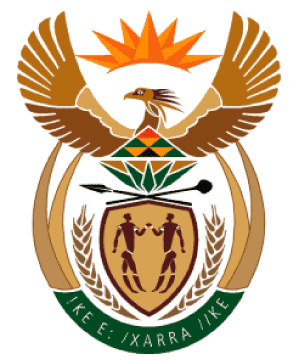
KZN sanitary dignity programme brings smiles
KZN sanitary dignity programme brings smiles vuyelwanThe Sanitary Dignity Programme will have a lasting impact on schools and local communities.
At the launch of the KwaZulu-Natal leg of the pilot programme, additional learners in need of support were added to the beneficiaries' list.
A teacher at Nkonkoni Primary School in Umlazi, Sibongile Nxumalo, said the inclusion of her school in the programme is good news.
“Most of our learners come from underprivileged homes and are in desperate need of sanitary pads,” said Nxumalo.
Government is committed to ensuring young girls remain in school and that the access to sanitary dignity products is universal. As such, it announced a zero-tax rating on sanitary products, which took effect from 1 April 2019.
Since 2016, the Department of Women has coordinated the development of the Sanitary Dignity Policy Framework which seeks to provide minimum norms and standards for the provision of sanitary towels to indigent girls and women.
Too often, girls miss school when they are menstruating because they cannot afford to purchase sanitary products.
In addressing the plight of girl children, a multi-pronged approach has been followed. According to the Department of Women, the framework is aimed at increasing the participation of women in the entire sanitary product value chain, from sanitary pads production, to transportation, storage and disposal.
Spokesperson for the Department of Women, Shalen Gajadhar, said the project will empower women entrepreneurs and be women-driven.
The department will also work with the Department of Social Development to teach pupils about the changes, both physical and emotional, that come with going through puberty.
Gajadhar said the programme will look at the proper disposal of sanitary towels. He said: “When you look at schools, the female bathrooms are more often clogged than the male ones because schoolgirls going through their cycle tend to flush toilet paper and old rags down the toilet. In a school with 10 toilets, you find that only one or two are working.”
KwaZulu-Natal has been allocated R27 million to roll-out sanitary towels in the 2019/20 financial year. Earlier launches of the programme took place in Piet Retief in Mpumalanga and in Makana in the Eastern Cape.
Life-saving drone takes flight
Life-saving drone takes flight Ursula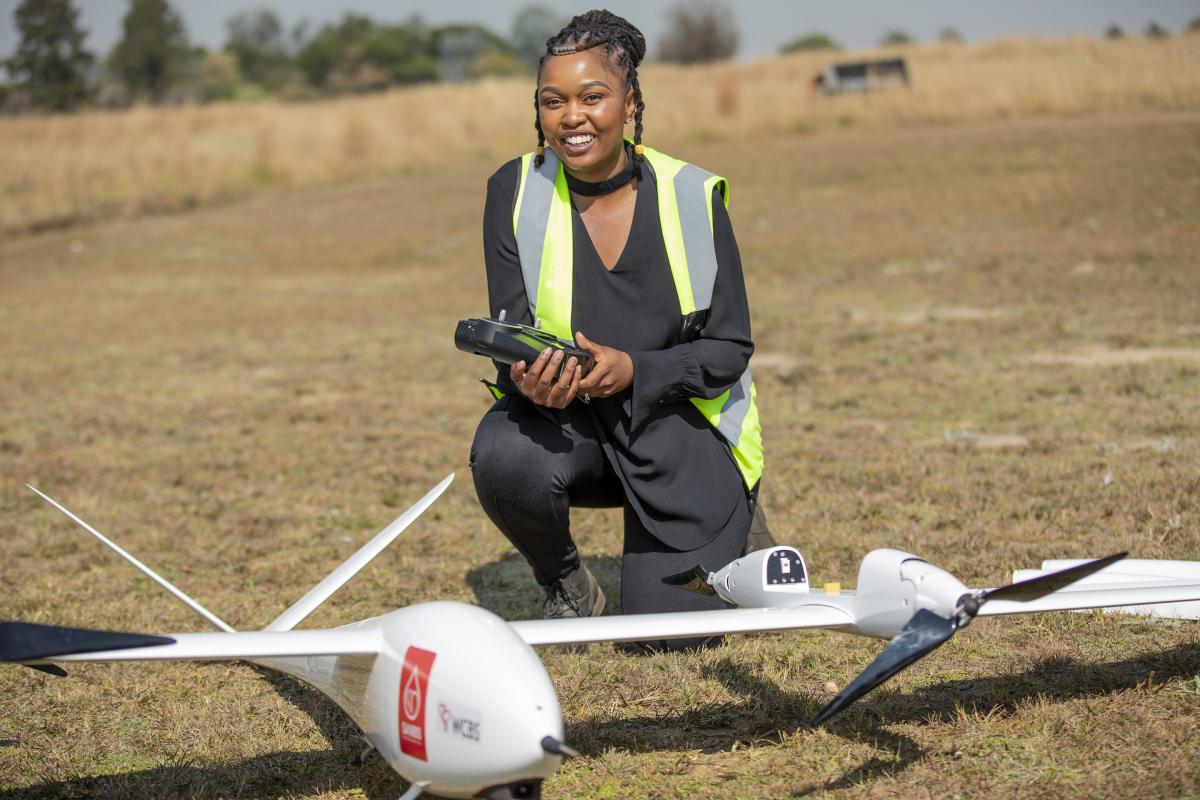 Lebohang Lebogo (29) is going to save lives by becoming the first pilot to fly a high-tech drone, that delivers blood, for the South African National Blood Service (SANBS) and the Western Cape Blood Service.
Lebohang Lebogo (29) is going to save lives by becoming the first pilot to fly a high-tech drone, that delivers blood, for the South African National Blood Service (SANBS) and the Western Cape Blood Service.
The TRON Unmanned Aerial Vehicle, that can fly a distance of 100km at 160km/h, can carry over two litres of life-saving blood to patients in rural areas.
Raised in Kagiso, Johannesburg, Lebogo joined the SANBS in 2008 as a temporary donor attendant. Apart from assisting those in need, she also has a passion for flying planes and is training for her pilot’s licence.
“I was employed last year as a technical support officer. My boss knew that I was doing aviation on the side, he asked me to join the drone task team and start training as the drone pilot,” said Lebogo.
“It has been exciting, but overwhelming too. I didn’t grow up playing with anything remote controlled. When I’m flying an aeroplane and need to turn right, I just turn the steering wheel right. With the drone, the controls are very different. But I’ve enjoyed it and got the hang of it in the end!”
The drone is still being tested and the SANBS is getting the proper licences from the Civil Aviation Authority.
“Because I have experience at blood banks, I have seen how urgent the need for blood is. Doctors come in panicking and looking for blood because people’s lives need to be saved in emergencies. So, when I’m flying the drone, I know that the blood will be able to reach people much faster,” she said.
“We believe that this is an innovative step in the history of blood transfusion. SANBS is determined to improve rapid access to life-saving blood products in rural areas through the use of drone technology,” said Dr Jonathan Louw, the CEO of the SANBS.
“Our concept is globally unique in that we will provide two-way logistics. Patients can receive emergency O negative blood from one of our blood banks via the drone. The same drone can then take that patient’s blood sample to the blood bank for cross-matching and then safely and rapidly deliver compatible blood back to the patient,” he added.
Multimedia centre gives hope to recovering addicts
Multimedia centre gives hope to recovering addicts Ursula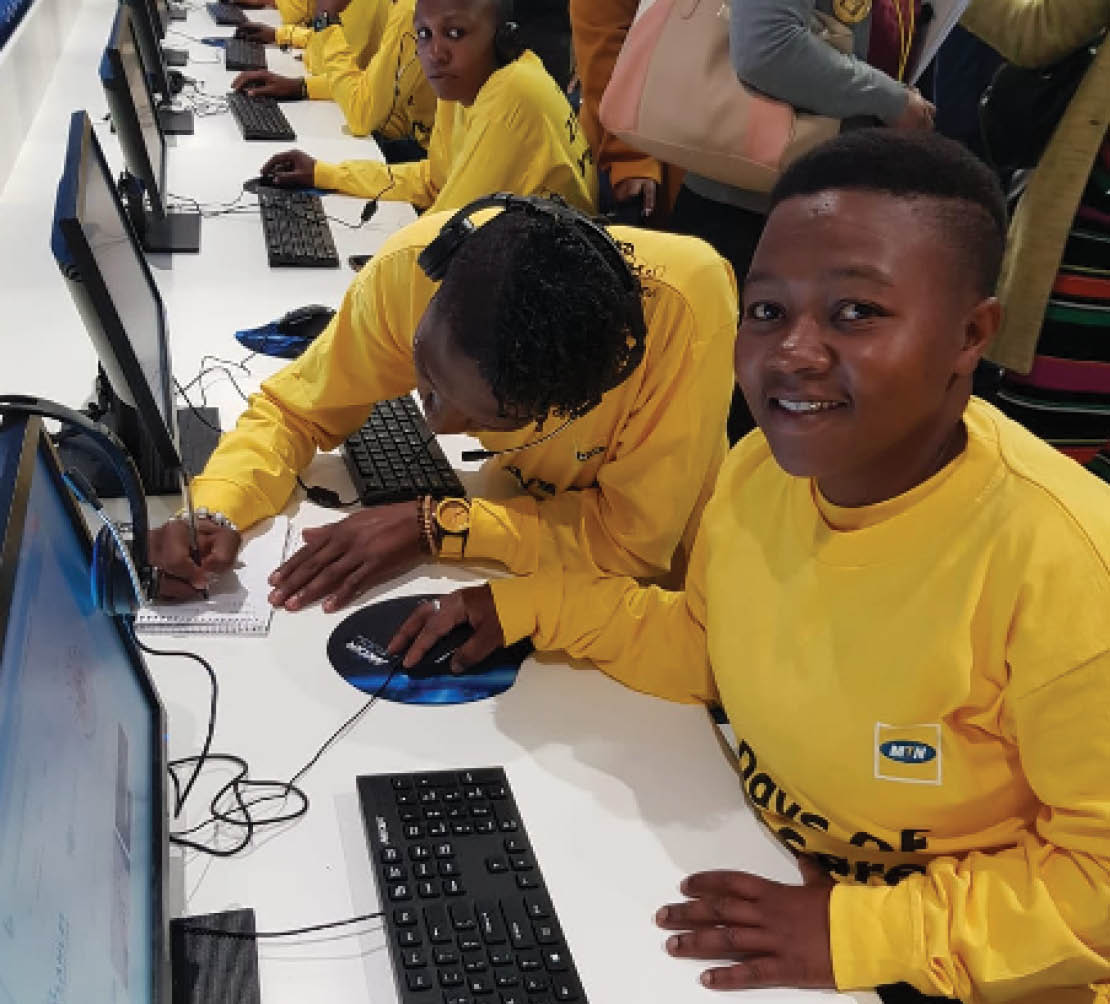 Social Development Deputy Minister Hendrietta Bogopane-Zulu has called on rehabilitation centres to offer support for the children left behind while parents are recovering from substance abuse addiction.
Social Development Deputy Minister Hendrietta Bogopane-Zulu has called on rehabilitation centres to offer support for the children left behind while parents are recovering from substance abuse addiction.
Bogopane-Zulu made the call during the official hand over of a multimedia centre at the Life Recovery Centre in Randfontein recently.
Funded by the Gauteng Department of Social Development to the tune of R56 million, the centre renders holistic treatment interventions to service users and their families to mitigate the social, psychological and health impact of substance abuse. The centre currently has 306 beneficiaries under the in-patient treatment and 44 in the halfway house programme.
The multimedia centre empowers patients, who are currently undergoing substance use disorder treatment, with accredited computer training to arm them with job-related skills.
The Deputy Minister said the multimedia centre will give addicts an opportunity to understand their lives better, understand their responsibilities, and give them access to the internet so they can tell their stories about their journey towards recovery.
The MTN Foundation has invested a total of R750 000 towards the renovation of a library and the building of the 22-seater multimedia centre.
The multimedia centre has an interactive white board, printer, teacher station and internet connectivity. The foundation will also provide 20 Gigabytes every month for the next 24 months for internet connectivity.
A recovering addict from Orange Farm, Tshepo Seame, (32), thanked the department and the MTN Foundation for preparing them for the outside world.
“We will use google and post our CVs, and in that way, we will become active productive members of society rather than previously when we were in active addiction and on the bad side of things,” Seame said.
Seame urged other addicts to make use of the rehabilitation centres, saying that the services offered are very helpful.
“There is life and hope in recovery, please check yourselves into rehab centres. Take it easy and one day at a time,” Seame said.
Get help to stop drug use: Call the South African National Council on Alcoholism and Drug Dependence on 011 892 3829.
Ndlovu Youth Choir inspires the nation
Ndlovu Youth Choir inspires the nation angenithaThe Ndlovu Youth Choir captured hearts across the globe during its recent performance on America’s Got Talent.
The Ndlovu Youth Choir recently performed and excelled on one of the world’s biggest stages - America’s Got Talent - in front of celebrity judges, thousands of audience members and millions of television viewers.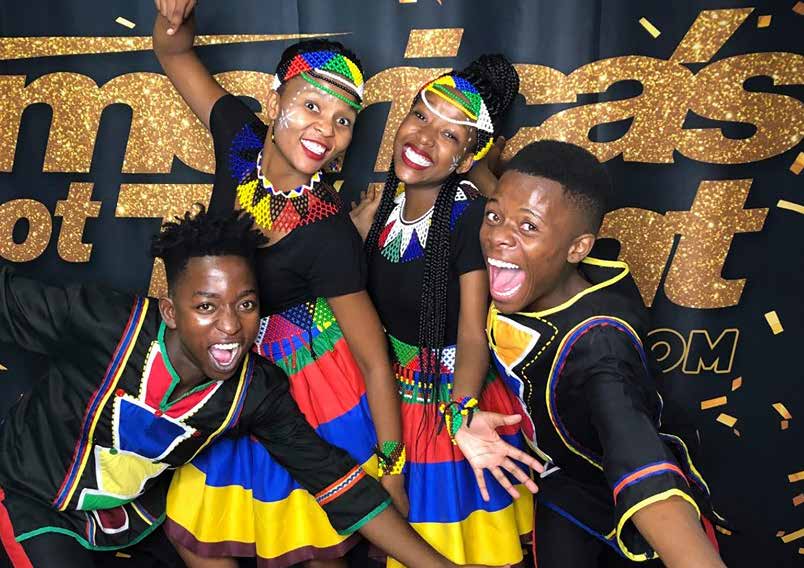
The choir blew everyone away with its incredible performance of Vicky Sampson’s My African Dream, and South Africans are bursting with pride.
Formed in 2009 under the Ndlovu Care Group, a Limpopo-based non-profit organisation, the choir is made up of teenagers from poor households. It was started as an after-school activity, where youth could escape their difficult home life with the power of music.
“We are trying to assist children who do not have a voice, face or any representation. We thought that by forming a choir, they will represent themselves with their beautiful voices and talent. The fact that you are born into poverty doesn’t mean that you are poverty. You can grow out of that poverty if excellence is offered to you,” said Dr Hugo Tempelman, the CEO of Ndlovu Care Group.
The choir received a standing ovation after its audition on America’s Got Talent, and received a solid ‘yes’ from all four judges – Simon Cowell, Howie Mandell, Gabrielle Union and Julianne Hough. Since then, the performance has been viewed over 4.5 million times on YouTube.
Choir member Sandile Majola says the choir has given his life purpose. “Before I got involved in the choir, I had no direction. I didn’t know who I was or what I was doing. I had no goal. It changed me, it made me a better person, and through music I learnt a lot. Through music there are now people looking up to me,” he said.
Nathi Mthethwa, the Minister of Sports, Arts and Culture, congratulated the choir on its incredible achievement. “The group blew the audience and judges away. It showcased the beauty and diverse nature of South Africa and Africa as a continent. To you, young ones, continue to inspire and provoke thought amongst all and fly the South African flag high as you journey on into the next level,” Minister Mthethwa said
The Ndlovu Youth Choir captured hearts across the globe during its recent performance on America’s Got Talent.
The Ndlovu Youth Choir recently performed and excelled on one of the world’s biggest stages - America’s Got Talent - in front of celebrity judges, thousands of audience members and millions of television viewers.
The choir blew everyone away with its incredible performance of Vicky Sampson’s My African Dream, and South Africans are bursting with pride.
Formed in 2009 under the Ndlovu Care Group, a Limpopo-based non-profit organisation, the choir is made up of teenagers from poor households. It was started as an after-school activity, where youth could escape their difficult home life with the power of music.
“We are trying to assist children who do not have a voice, face or any representation. We thought that by forming a choir, they will represent themselves with their beautiful voices and talent. The fact that you are born into poverty doesn’t mean that you are poverty. You can grow out of that poverty if excellence is offered to you,” said Dr Hugo Tempelman, the CEO of Ndlovu Care Group.
The choir received a standing ovation after its audition on America’s Got Talent, and received a solid ‘yes’ from all four judges – Simon Cowell, Howie Mandell, Gabrielle Union and Julianne Hough. Since then, the performance has been viewed over 4.5 million times on YouTube.
Choir member Sandile Majola says the choir has given his life purpose. “Before I got involved in the choir, I had no direction. I didn’t know who I was or what I was doing. I had no goal. It changed me, it made me a better person, and through music I learnt a lot. Through music there are now people looking up to me,” he said.
Nathi Mthethwa, the Minister of Sports, Arts and Culture, congratulated the choir on its incredible achievement. “The group blew the audience and judges away. It showcased the beauty and diverse nature of South Africa and Africa as a continent. To you, young ones, continue to inspire and provoke thought amongst all and fly the South African flag high as you journey on into the next level,” Minister Mthethwa said.
Oncology clinic in township saves lives
Oncology clinic in township saves lives UrsulaA township-based breast oncology clinic in the Western Cape is easing the burden of the disease by providing treatment closer to home and ensuring a shorter wait for treatment.
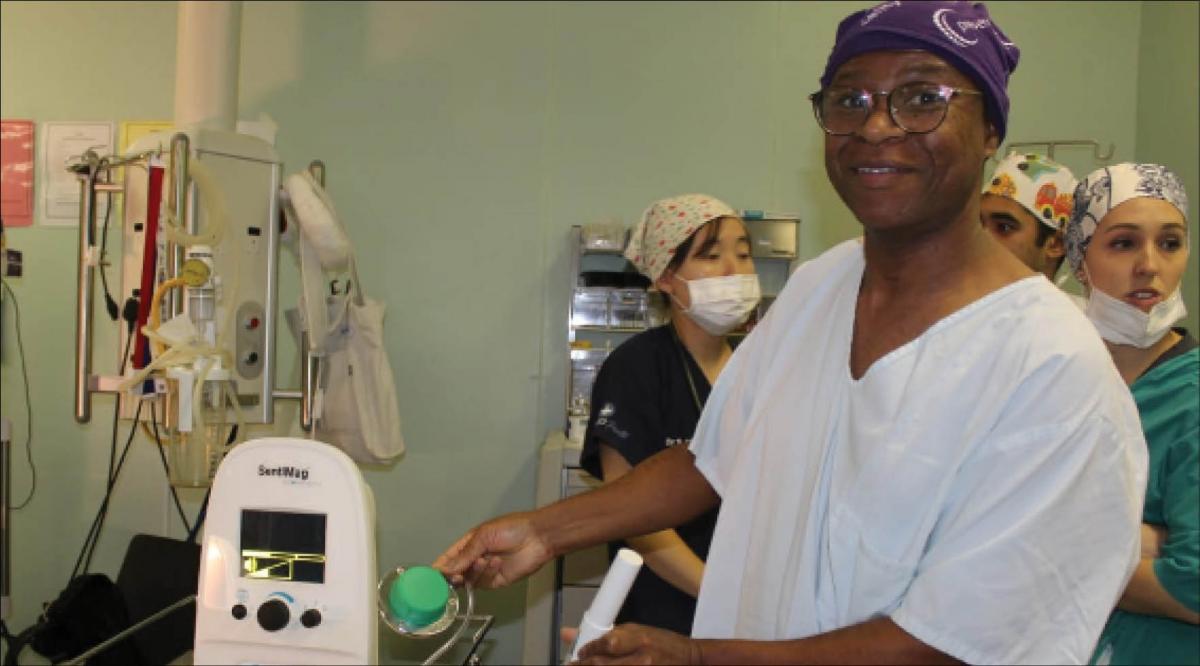 A breast oncology clinic that recently opened at the Khayelitsha Hospital has saved the life of Lizzy Mgquba.
A breast oncology clinic that recently opened at the Khayelitsha Hospital has saved the life of Lizzy Mgquba.
Mgquba (67) said she received a lifesaving single mastectomy at the clinic last year, after her GP discovered a tumour in her armpit and referred her to the Tygerberg Hospital, which in turn sent her to the oncology unit, which is closer to her home.
Speaking from her Khayelitsha home, Mgquba said that with the clinic close by, her treatment was made easier. The trips to Tygerberg Hospital would have been a costly and time-consuming exercise, she said.
“The oncology clinic has very good facilities and the doctors know what they are doing. I am very happy with the service that I received there,” she said.
The clinic was opened in partnership with Tygerberg Hospital. “Due to the large number of people requiring breast oncology services, many patients often experience long waiting times to receive their much-needed treatment.
“To address this, the surgical team at Khayelitsha Hospital, in collaboration with Tygerberg Hospital Breast Unit, started a breast cancer surgery project,” said Sithembiso Magubane, a communications officer for the Western Cape Department of Health.
A surgeon at Khayelitsha Hospital, Dr Austin Goliath, said the establishment of the clinic has resulted in a more effective breast cancer response and has eased the pressure on Tygerberg Hospital, which is the only facility in the region to provide mammography services.
Dr Goliath said people in the community had shown increased awareness of the symptoms of breast cancer but he encouraged more young people to do self-examinations for lumps.
“Regular breast self-examination is the way to go. If detected earlier, we are able to provide treatment earlier, which means a better chance of survival because the disease is easier to treat when in its early stages.”
The clinic currently operates once a week. Dr Goliath said over time they plan to expand its operating hours and also to treat other forms of cancer.
Oscar takes top honours in Germany
Oscar takes top honours in Germany angenithaA young South African choreographer has made a name for himself on the international stage.
Oscar Buthelezi (28) has risen from humble beginnings in Vosloorus to win three prestigious awards in one of the world’s top choreography competitions.
Buthelezi returned home victorious from the 33rd International Competition for Choreographers in Hanover, Germany, where he won a three-week scholarship with the Australian Dance Theatre; the Audience Choice Award and the Jury Award – the main prize – for his dance piece ‘ROAD’, which has won numerous local and international awards.
The piece tells the story of Buthulezi’s challenges and successes and he is humbled and honoured to have won the awards, as he was competing against other world-class international choreographers.
“I was very nervous before the awards, I was shaking. When I heard my name being called it was overwhelming and breath-taking.
“I am very grateful for all of the awards. They mean so much to me. Being chosen by the audience shows their sense of appreciation. Winning the main prize is obviously a huge honour. But the scholarship is also going to be a great experience for me,” he said.
Buthelezi was trained at dance company Moving into Dance, in Mophatong, where he has worked as a choreographer and teacher for several years.
“It has been a great journey. Smooth but hard. If you want to get something beautiful, you need to work hard for it. I would love to thank Moving into Dance – it has taken me from the township, given me a chance to study and now to choreograph and teach,” said Buthulezi.
Buthelezi’s trip to Germany was funded by a crowdfunding campaign. “Thank you so much to all the people who joined in to sponsor me. If it wasn’t for you, I would not have this joy,” Buthulezi said.
He hopes that other youth get to travel the same road to success. “I hope that what Moving into Dance has done for me also gets taken to other youth who want to dance or choreograph as a career.”
Moving into Dance CEO Nadia Virasamy said that Oscar’s achievements are proof that the company is on par with international standards.
“Oscar’s achievement is obviously hugely celebrated because he is one of many successful dancers and choreographers who have had the opportunity to be trained at Moving into Dance and perform professionally.”
Pineapple power moves
Pineapple power moves tsoanaVillagers who revived disused pineapple farms in Bingqala near Ngqushwa have built a growing agricultural enterprise.
The Bingqala Pineapple Co-operative was started in 2014 by community members who were employees of the Ciskei Agricultural Corporation (Ulimocor) Farms, which were previously run by a parastatal of the Ciskei government.
The nine-member Bingqala co-operative has secured a supply contract with East London food processor Summerpride Foods.
Co-operative manager Litha Zitshu said since they started in 2014, they have enjoyed a steady increase in production volumes and turnover. As the business grows, they hope to hire more people from the community.
“Revenue per year ranges from R800 000 to R1 million, and when prices are good it can go up to R1.5 million. We currently have 35 employees, of which 25 are permanent. When we harvest in April and May, some more come in to help and again around September harvest we get casuals.”
Zitshu said the co-op, which currently cultivates 70 hectares of its 583 hectares, plans to expand by 20 hectares every year. While it produced 1 000 tons over the course of 2018, it has already achieved a yield of 800 tons thus far this year and therefore expects volumes to almost double.
He said, however, that market price challenges are being experienced.
“This year, the market price is low at R1 000 per ton, but in 2016 it was R2 600 per ton. With pineapple juice sold overseas, our returns are affected by foreign markets,” said Zitshu. “With the increase in production, we hope to be able to make up for the fall in prices so that we can achieve our revenue target.”
He added that the provincial government, through the Department of Rural Development and Agrarian Reform (DRDAR), has helped establish the business.
“The DRDAR has made many interventions; they set aside a budget every year to help us with production inputs, fertiliser, chemicals and fuels, as well as machinery. We use tractors that were donated by former president Jacob Zuma to the local chief,” said Zitshu.
Potato farming beckons for
Potato farming beckons for tsoanaAn initiative between Eastern Cape state entities and Potato SA is set to turn former subsistence farmers into commercial potato farmers. 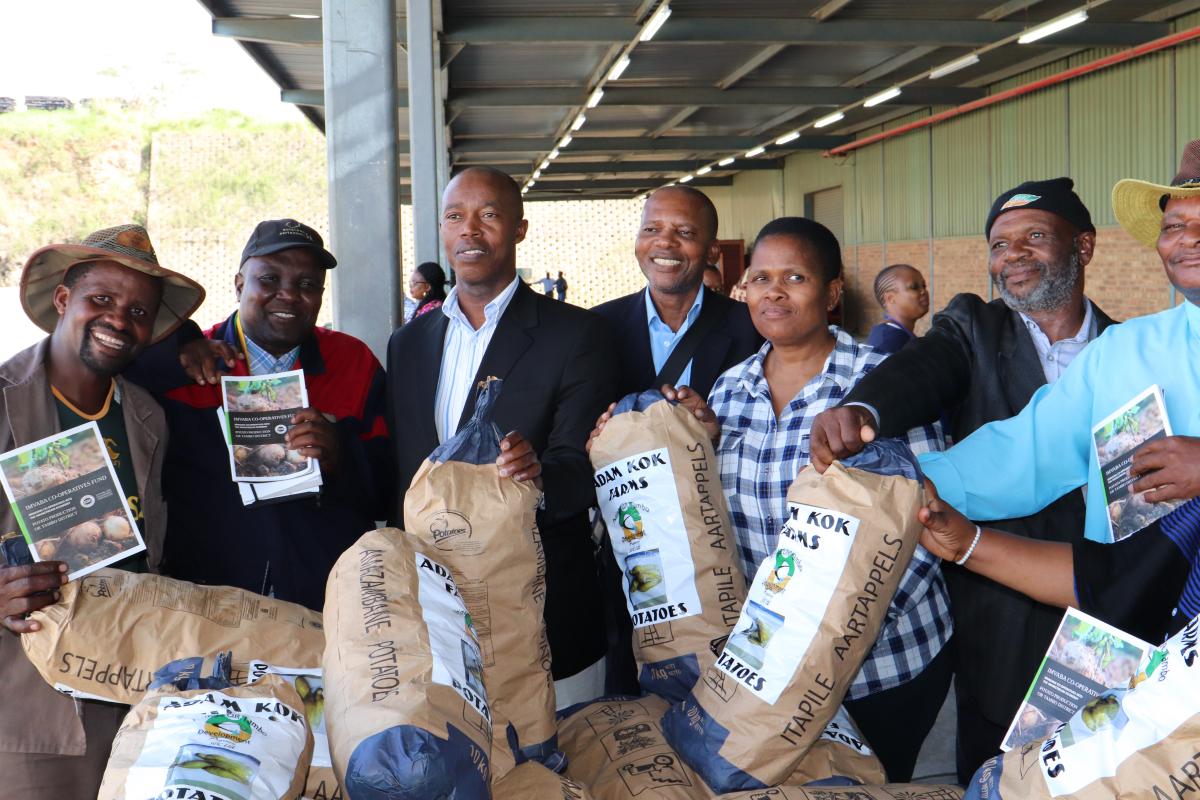
The farmers in the OR Tambo (ORT) District, which includes Mthatha, Mqanduli and Ngqeleni, have multiplied their production volumes since the start of the mentorship and development programme three years ago.
Provincial development agency Eastern Cape Development Corporation (ECDC) injected R3.5 million into the initiative – R500 000 for each of the seven co-operatives, while the Ntinga OR Tambo Development Agency, Kei Fresh Produce Market and Potato SA focused on training and market support to ensure the farmers could deliver a quality product.
The farmers were also trained in bookkeeping with the help of the then Department of Agriculture, Forestry and Fisheries. Mlungisi Ndobeni, one of the producers, said the seven co-ops started growing potatoes on a subsistence basis without much knowledge of the standards required in the retail sector.
“Potato SA taught us how to produce quality potatoes. They assessed potatoes from each of the nine areas in the OR Tambo District and seven of those areas passed the trials and were assisted in planting one hectare each. Then ECDC contributed funding and that took us to 28 hectares each so we have a total of four hectares.
He said their ultimate goal is to become commercial farmers with agro-processing facilities for potato chips. Ntinga spokesperson Zukile Ncapayi said the development agency’s aim is to support farmers to produce properly graded produce that can be packaged and sold via formal distribution channels.
“A survey we did in 2008 found that potatoes were the number one vegetable in terms of sales in ORT, so we came up with interventions to develop local farmers. We assisted with implements and training in proper grading, so that they
could produce at a semi-commercial level,” said Ncapayi.
Ntinga also supplied a potato washing machine which grades potatoes according to size and quality. This helps local farmers become more competitive in terms of market standards and correct pricing.
Solar charger inventor has big plans
Solar charger inventor has big plans angenithaYoung inventor Tumelo Photolo is set to take charge of his financial independence, thanks to the Free State Department of Economic, Small Business Development, Tourism and Environmental Affairs (Destea).
The young man from Qwa Qwa has developed a solar cellphone charger – with the battery neatly tucked into a cellphone cover.
The small battery is solar powered, which means it converts energy from sunlight into electricity. When the sun sets, it uses energy it has stored to charge the phone.
Photolo (24) won R100 000 in the Destea Tabalaza Pitching Session in 2018 and used the money to fund the development of his product.
The Tabalaza Pitching Session is an incentive scheme that promotes and encourages entrepreneurship among young people by identifying business ideas and products that can be supported by potential investors and stakeholders.
His invention was inspired by a class discussion when he was in Grade 11 on how solar energy can change lives in South Africa.
Photolo is of the St Engenas Zion Christian Church faith and explained that when he went to the church’s annual gathering in Moria, he and many congregants struggled to find places to charge their phones.
“I saw a business opportunity and developed my solar charging bag, which I believe will have a big market in Africa.”
He said the bag is fashionable despite its practical purpose.
According to Photolo, he started the journey that ultimately led to his invention back in middle school when he would fix electrical appliances for money.
“I don’t give up because I believe that every problem has a solution, all we need to do is stretch our minds,” he said.
“I’m an entrepreneur by nature; I feel excited when we talk about business, although it’s not an easy thing for those who want an overnight success. Business requires someone who is innovative and who is always looking for ways to develop and improve the idea and business,” he said.
Photolo’s product is currently at the Product Development Technology Station at the Central University of Technology in the Free State to get it market ready.
Support lasting change this Mandela Day
Support lasting change this Mandela Day Ursula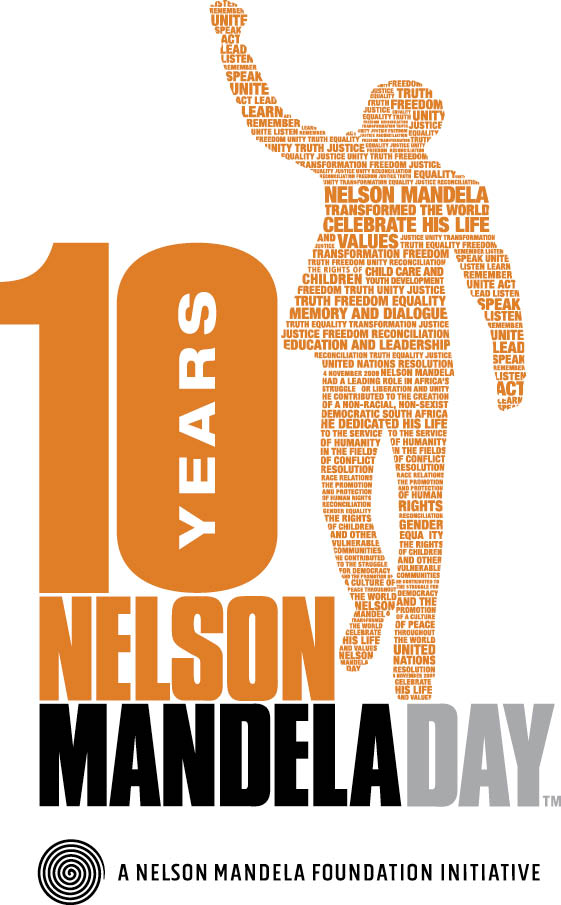 Let us all take action and inspire change by starting our own Mandela Day initiative or supporting planned events in our communities. Go on, make every day a Mandela Day.
Let us all take action and inspire change by starting our own Mandela Day initiative or supporting planned events in our communities. Go on, make every day a Mandela Day.
What will you be doing for Mandela Day? This question should be on everyone’s lips this month!
What is Mandela Day?
Each year, on 18 July, Mandela Day calls on all of us to do our part to make the world a better place. More importantly, this global initiative celebrating the life, ideals and humanitarian actions of Tata Mandela encourages us to build sustainable actions that will leave lasting impacts.
As the Nelson Mandela Foundation states: “Nelson Mandela saw himself first and foremost as a servant of South Africa’s people, to whom he felt he owed a duty, and who he led by example. In the spirit of Madiba and his vision to spread social justice and freedom for all, this is your chance to become part of a continuous global movement for good.”
What is happening this Mandela Day?
This year’s Mandela Day is taking place under the theme #ACTIONAGAINSTPOVERTY.
This is the 10th year that the event will be celebrated and it signals a new strategy that encourages people to get involved in supporting education, literacy, food and nutrition, sanitation, shelter and active citizenship. The strategy acknowledges that true change cannot happen in just one day – we must all come together in a collaborative effort to create change every day.
President Cyril Ramaphosa and his Cabinet are calling on all South Africans to use the month to uphold the legacy of Madiba by taking collective action against poverty.
Various government, community and NGO initiatives will take place. These will focus on the 10 Nelson Mandela Day Goals for 2019 – 2020 and South Africans are encouraged to support these initiatives.
Mandela Day Goals
2019 – 2020
- Goal 1 – Provision of quality education for children.
- Goal 2 – All children in ECD centres to have access to learning resources for development.
- Goal 3 – Reduce hunger in families through the provision of nutritious meals.
- Goal 4 – Eliminate malnutrition and stunting among young children.
- Goal 5 – Provide safe shelter for families.
- Goal 6 – Eliminate homelessness.
- Goal 7 – Ensure safe school sanitation.
- Goal 8 – Enable access to safe sanitation to all communities.
- Goal 9 – Dedicate more resources to supporting poverty eradication efforts.
- Goal 10 – Increase resources allocated to the provision of ECD in disadvantaged communities.
Supporting colleagues with depression
Supporting colleagues with depression angenithaWith over 9.7 percent of South Africa’s population suffering from depression, anxiety or both, the chance is high that one or more of your colleagues or employees is battling with one of these mental health conditions right now.
This is why workplaces that promote mental health and support people with mental health conditions are more likely to reduce absenteeism and increase productivity.The best way to understand the difference between anxiety and depression is to look at the primary symptoms of each.
According to the Acting CEO of Weskoppies Hospital, Beulah Schoonwinkel, people with generalised anxiety disorder experience hard to control, excessive worrying about a variety of issues from health and family problems to money, school and work.
“This results in physical and mental complaints, from muscle tension and restlessness to becoming easily tired and irritable, experiencing poor concentration and insomnia,” she said.
Those suffering from depression – which is defined as an excessively depressed mood, with significant impairment in social and occupational functioning – are miserable for at least two weeks, all day, every day.
They feel sad, down or depressed; lose interest in nearly all of the activities they previously enjoyed; and experience other symptoms like fatigue, an inability to concentrate and feeling worthless or guilty. They could also have suicidal thoughts.
Create a healthy workplace
Managers and senior officials can help to create a heathy workplace by being aware of mental health conditions and knowing where people can find help.
They can also inform staff that support is available; involve employees in decision-making, thus conveying a feeling of control and participation; support a healthy work-life balance; and recognise and reward employees’ contributions.
“Depression causes problems with memory, procrastination, extreme fatigue, difficulty concentrating, anxiety, fear and panic, which add to work-related stresses, crippling the output from the employee,” said Dr Sebolelo Seape, the chairperson of the Psychiatry Management Group.
“In South Africa, employees are very likely to keep working during periods of depression, impacting their productivity and performance at work. This can be due to fear of losing their jobs, being ostracised by colleagues or a lack of mental health knowledge,” he said.
To get help for anxiety or depression, visit your doctor who can refer to you a psychologist or psychiatrist if needed. You can also contact the SA Depression and Anxiety Group at 011 234 4837; the suicide emergency line at 0800 567 567; or Lifeline’s 24-hour helpline at 0861 322 322.
TALIS gives a broad
TALIS gives a broad tsoanaBasic Education Minister Angie Motshekga said the department will work hard to address the lack of support staff to reduce the amount of time teachers spend on clerical tasks.
Minister Motshekga was responding to the findings from the Teaching and Learning International (TALIS) research survey released by the Basic Education Department recently.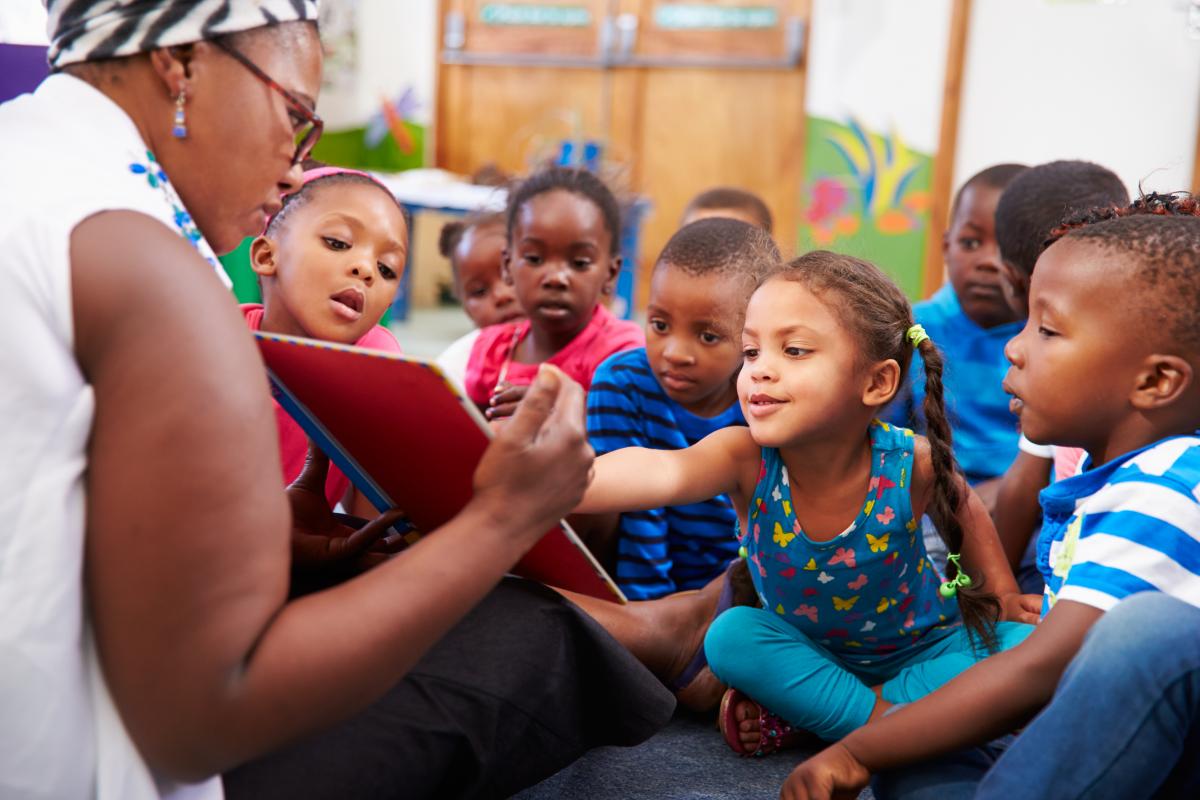
TALIS is an international large-scale survey of teachers that investigates the condition of the teaching and learning environment in schools in participating Organisation for Economic Cooperation and Development (OECD) countries and partners.
South Africa participated in the survey for the first time in 2018, making it the first African country to take part in such a survey.
The survey revealed that South African teachers are spending a hefty amount of time on administrative tasks – time which could be better used on teaching in the classroom.
Only 66 percent of classroom time is spent on actual teaching and learning in South Africa, compared to 78 percent in other countries.
Administrative burdens and keeping order in the classroom are some of the challenges cited by South African teachers as chipping away from their teaching time.
“This is an important report because it comes from the teachers themselves... Having read the report, we have to take into consideration, in our own context, what the reality is in terms of addressing the issues raised,” said the Minister.
Classroom size was also highlighted as a huge challenge by teachers. This was particularly evident in a question posed to teachers regarding where they would prioritise their spending if given the opportunity.
OECD researcher Dr Noémie Le Donné said teachers ranked the reduction of classrooms as top of their agenda, with the increase of teacher salaries as second priority.
While challenges were noted, the report highlighted key areas with positive results.
At least 88 percent of teachers surveyed reported that attending and participating in courses and seminars had a positive impact on their teaching practice.
“It is also true that teachers who report participating in such impactful training tend to display higher levels of self-efficacy and job satisfaction. The association is particularly strong in South Africa,” said Le Donné.
At least 97 percent of teachers in South Africa cited the opportunity to influence children’s development or contribute to society, as a major workplace motivation.
In a bid to find solutions, the researchers recommended that the department look into reducing classroom sizes.
SAnews.gov.za
Tackling youth unemployment
Tackling youth unemployment Ursula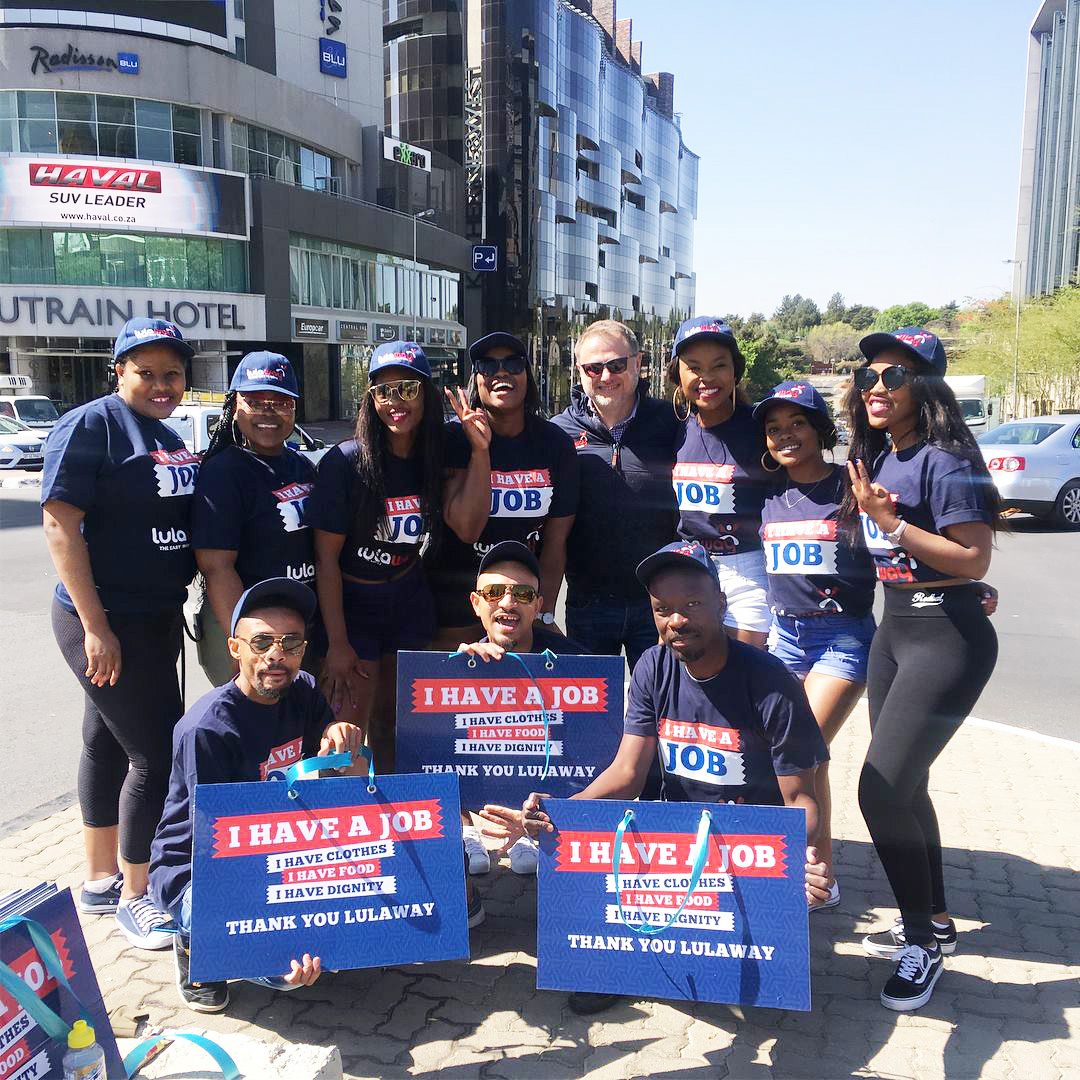 Youth-oriented organisation Lulaway is significantly addressing youth unemployment, having facilitated employment and internship opportunities for over 30 000 youth.
Youth-oriented organisation Lulaway is significantly addressing youth unemployment, having facilitated employment and internship opportunities for over 30 000 youth.
Working closely with government, non-profit organisations and the private sector, Lulaway has established over 200 job centres in all nine provinces.
In Bellville, the Lulaway Workforce Development Project – funded by the City of Cape Town – runs a three-year training programme to assist jobseekers prepare for the world of work.
Since the beginning of 2011, the organisation has registered over 516 149 young people on its jobseekers’ database, trained 5 472 and placed 2 968 in permanent jobs, ranging from administrative positions, to general work, security, sales, beauty and contact centre operations.
One of the beneficiaries is Beauty Mnxulu (26), who lives in the township of Khayelitsha. After four long years of struggling to find work, Mnxulu signed up for Lulaway’s job readiness programme. She is now employed as a Fidelity recruitment agent.
“When I went to the job readiness training, even that was a dream come true for me because the people who were teaching us did it with passion. I knew it was going to help me find a job and not long after, I was employed. I meet different people every day; people are struggling to find work but I am determined to help. Because of what I was taught by the Lulaway people, I am doing my job with passion and I love what I do,” says Mnxulu.
Another Khayelitsha resident, Zikhona Yeko (24), also struggled to find work but after participating in the programme, she is now working as a sales agent for Cell C.
“The struggles I went through are part of my success because they made me strong,” Yeko said.
The city’s member of the mayoral committee for economic opportunities, James Vos, said the programme is a success story of how working with partners can overcome the challenges of unemployment.
Youth who want to register with Lulaway can create a basic profile at https://www.lulaway.co.za/register/ and then go to their nearest job centre to complete the job application and assessments.
Trekking for Mandela and caring for girls
Trekking for Mandela and caring for girls Ursula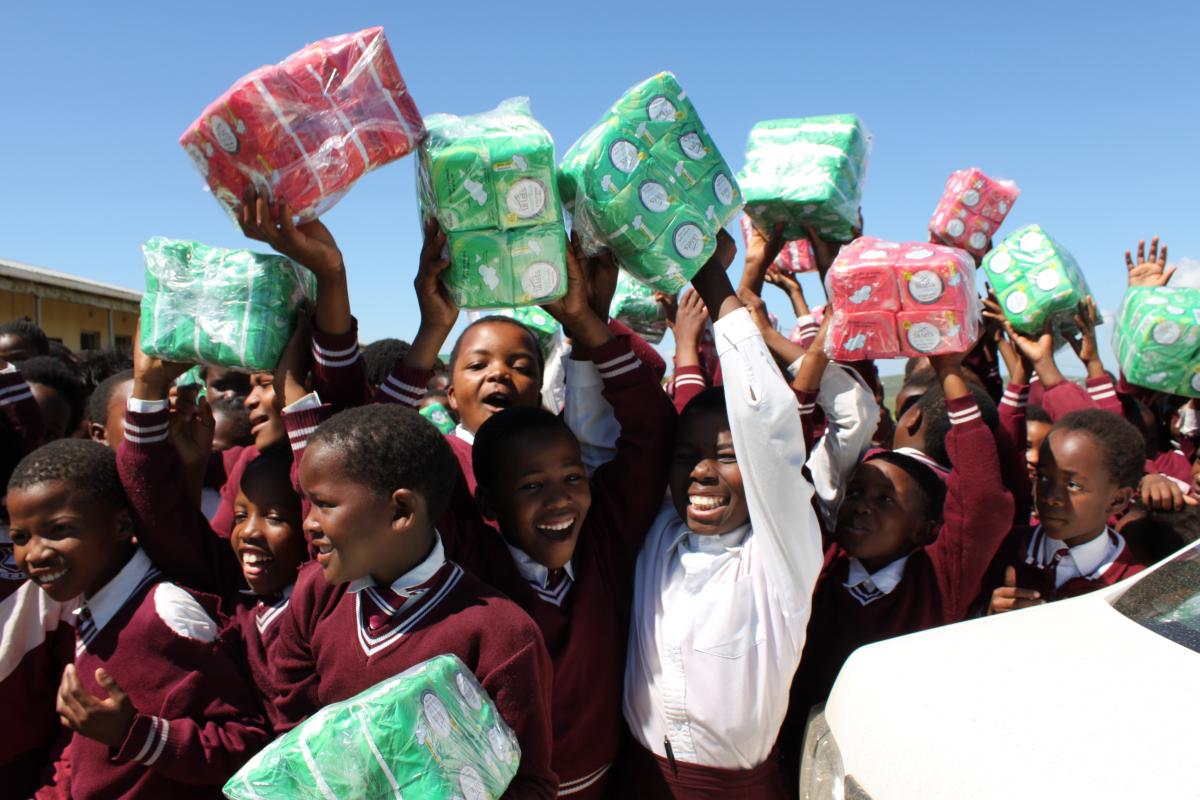 Founded in 1999 by the great man himself, the Nelson Mandela Foundation is one of South Africa’s leading NGOs, supporting a wide range of causes about which Tata Madiba was passionate. The foundation also partners with other organisations that support worthy causes.
Founded in 1999 by the great man himself, the Nelson Mandela Foundation is one of South Africa’s leading NGOs, supporting a wide range of causes about which Tata Madiba was passionate. The foundation also partners with other organisations that support worthy causes.
One of these organisations is the Imbumba Foundation, which was established in 2010 by social entrepreneur Richard Mabaso. The foundation aims to bring social change and upliftment within rural and poor communities in Southern Africa.
Caring4Girls
This Imbumba Foundation initiative provides sanitary towels and feminine hygiene education to young girls, to ensure that they do not miss school due to their monthly menstrual cycle.
“Research has shown that underprivileged girls can miss up to 50 days of school per year due to lack of access to adequate feminine hygiene products,” explains Mabaso.
The programme currently reaches over 750 000 girls throughout South Africa and it aims to increase this to 2 million by 2020.
Trek4Mandela and Trek100
Every year, the Imbumba Foundation arranges the Trek4Mandela expedition. Led by adventurer Sibusiso Vilane, the expedition brings various public and corporate figures together to climb Kilimanjaro, reaching the summit on Mandela Day, 18 July. This year will be particularly special, as it will form part of the Mandela Centenary Legacy initiatives started by the Imbumba Foundation last year.
In August, Thuli Madonsela will be the leading figure in the Executive Climb to commemorate Women’s Day.
These two treks aim to raise enough funds for one million girl children to be provided with sanitary towels.
Meanwhile, Trek100 is a joint initiative with the Nelson Mandela Foundation that will see 100 girls from disadvantaged backgrounds being given the once-in-a-lifetime opportunity to trek in beautiful areas on one of the seven continents.
The first expedition, to the Sahara Desert in Morocco, took place in September 2018. One of the trekkers, 19-year-old Silindile Madonsela from Matsulu in Mpumalanga, said that the experience inspired her.
“It has inspired me to be more and do more… that anything is possible and that you should take every opportunity.”
*Support the Trek4Mandela climb by sending an SMS with the word ‘GIRLCHILD’ to 42513 to make a pledge of R30 towards the Imbumba Foundation.
Woolworths plays its part in Yes programme
Woolworths plays its part in Yes programme JoyYonela Gozini (19) is one of 450 learners that Woolworths has employed, on a one-year contract, as part of the Youth Employment Service (YES) programme and the appointment is already changing her life.
YES was launched by President Cyril Ramaphosa in 2018 as a government-led partnership with business, labour and civil society to tackle the national plan to build economic pathways for black youth.
The programme aims to empower one million young South Africans by offering paid, quality work experience.
Gozini started working at Woolworths at the end of April, as a visual merchandiser in the Marketing Business Unit, and is able to help her family as a result.
“I am getting work experience and benefitting from new experiences. I am now able to help my family because I am the only one working. With this opportunity, I hope I can work at Woolworths for a long time,” said Gozini.
“We are proud to work alongside government and with other South African businesses on this initiative to address the issue of youth unemployment, which has become a massive challenge in South Africa. We are pleased to have co-created a programme across our business units which will equip youth with key skills and prepare them with a work-readiness toolkit, as well as a network, to build the foundations of their working career,” said Woolworths SA CEO, Zyda Rylands.
Woolworths has always believed that skills development is a key enabler to empowerment and transformation, not only for the company, but also for the retail sector and the country. It has been actively involved in making a difference in South Africa, through education.
“We are privileged and humbled to be part of YES, which provides us with an opportunity to reach more young people and address some of the systemic challenges facing our country. By being actively involved in youth development, we create career progression within our own business, improve the diversity of our workforce and our potential talent pool, and contribute to the development of employable skills in the country. This is part of our role as a responsible corporate citizen in South Africa,” said Rylands.
Gozini urges the youth to never give up. “You must apply for jobs every day, because there are opportunities out there. Keep trying and keep applying,” she said.
How to register to be part of the YES programme?
Log onto our website: www.yes4youth.co.za/youth-registration and register as a YES youth.